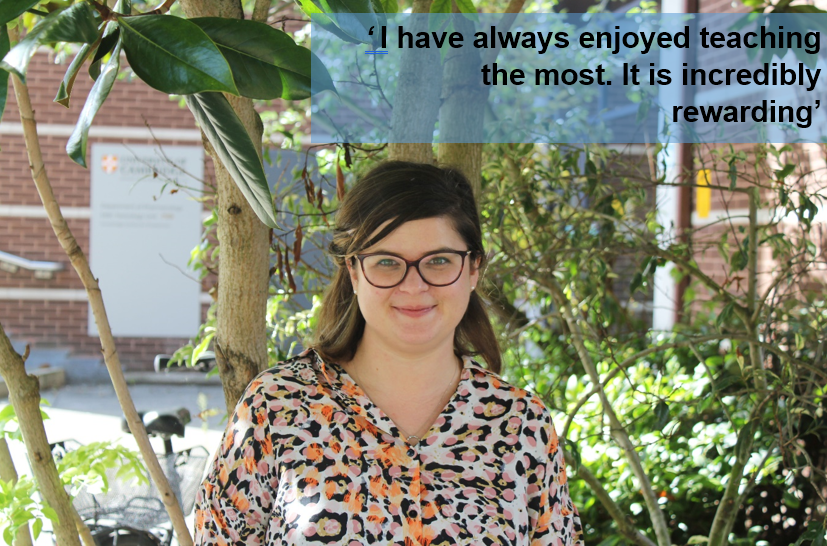An Interview with Dr Sarah Millington
Dr Sarah Millington is the new Department of Pharmacology Senior Teaching Associate and a College Teaching Associate in Sidney Sussex College. Sarah has been in Cambridge for 10 years, completing her Natural Sciences undergraduate degree followed by a PhD studying platelet biology and thrombosis, funded by the British Heart Foundation. Sarah is an exceptionally passionate and gifted researcher and teacher; we interviewed Sarah and asked her about her experience working in Pharmacology.
Who are you and what do you work on?
I’m Sarah Millington and I did my PhD and postdoc research looking at platelet activation pathways in thrombosis. From October 2021 I will be taking on a new role as a Senior Teaching Associate in the Department, developing our undergraduate courses.
What do you love about your job?
In academia, I have always enjoyed teaching the most. It is incredibly rewarding.
How/why did your research lead you to Cambridge?
I studied Natural Sciences as an undergraduate and 10 years later, I’m still here! I’ve moved across the road from the Physiology Department to Pharmacology, but Cambridge is such a special place I’ve never wanted to leave. It’s not always easy to stay in one place for an academic career, but I am so grateful the right opportunities have come up for me so far.
Other than science what is most important for you in life?
My family and friends and keeping healthy.
Do you have any advice to early-career women scientists?
This applies to everyone but I would say “You do You”. There are an infinite numbers of ways to navigate a scientific career, both outside and within academia and if you want to follow a less common path, then don’t let others’ opinions hold you back. Also, don’t be afraid to speak up and stand up for yourself if you feel you are ever been treated unfairly or discriminated against.
What/Who first sparked your interest in Science?
I was originally interested in studying medicine but my own health challenges made that difficult. My interest in the human body and desire to help people then led to teaching and more translational research interests in pharmacology.
Why is science fun?
We are always learning something new and every so often my mind blows at the scale and complexity of the processes going on in our cells!
What female scientist do you most admire and why?
I’ve admired many female scientists I have met at Cambridge who are juggling a whole load of commitments at home and in work yet always somehow find time to help those who need it. That's what I will strive to emulate!
How do you relax?
I love doing barre to relieve some stress and playing the oboe in orchestras.
How would you like to be remembered?
As a teacher who cared and went the extra mile. A cheerleader and the voice in students’ heads saying “just make sure you answer the question”!

